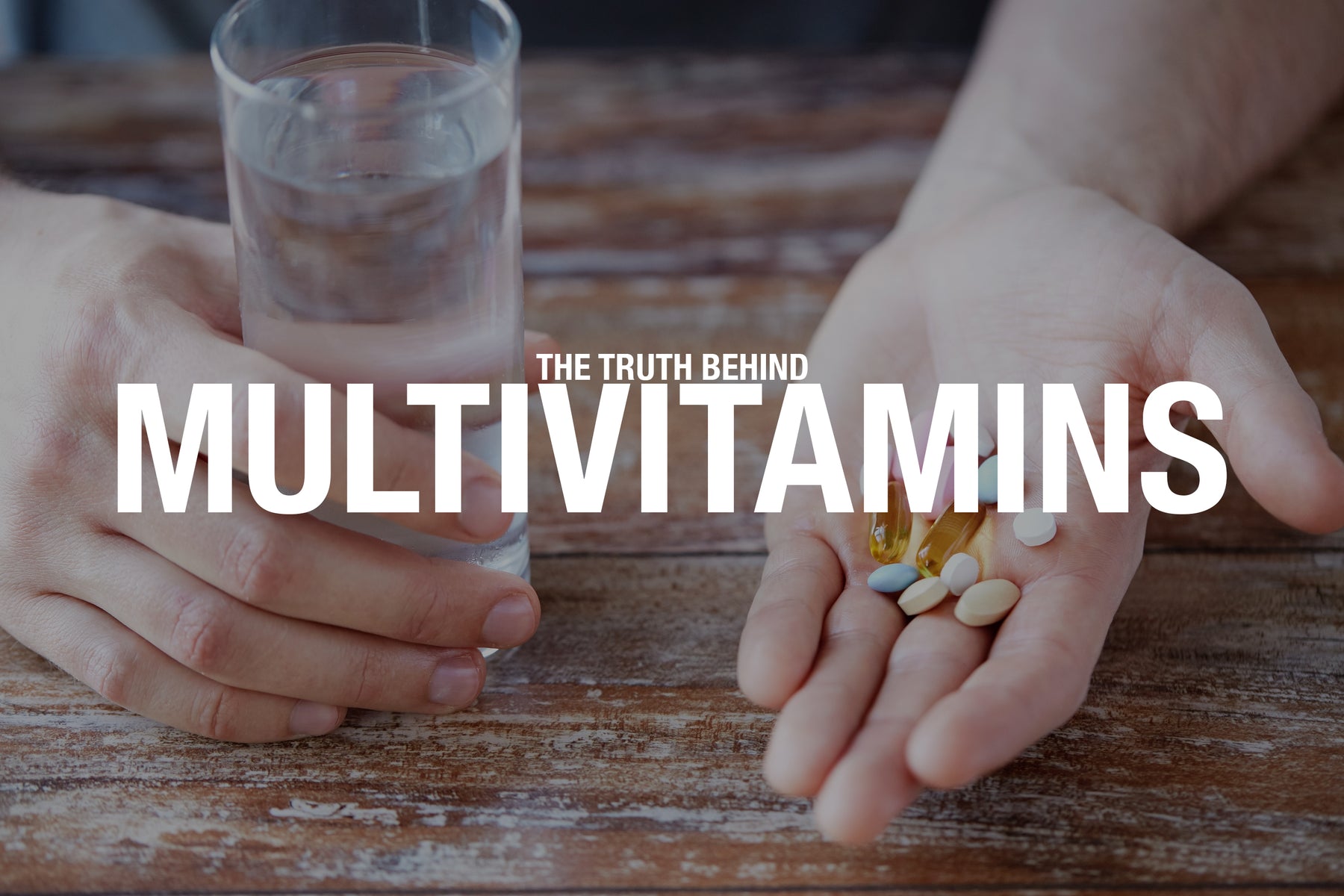On orders over $30!

The Truth Behind Multivitamins
Multivitamins are big business and you can buy them almost anywhere but are they really beneficial and do you need to be taking one? Good questions.
Why Multivitamins?
Our typical diets and lifestyles aren’t as healthy as they could be and often are lacking in nutrients your body needs to function properly. The ideal way to boost the nutrients in our diets would be to eat more fruits and vegetables as well as healthy protein and grains. However, even that can still leave gaps in nutrition. Studies have shown that modern agriculture practices have left the soil we grow our food in stripped of nutrients leaving the foods we grow less nutritious than they were decades ago. So where does that leave you?
If you eat a very healthy diet and know you are deficient in just one or two nutrients it’s probably fine to just supplement those particular vitamins or minerals. But if you are not eating a very nutritious diet, are elderly or in poor health, taking a multivitamin may be a really good idea.
What You Didn't Know
Multivitamins can supply your body with vitamins, minerals and other nutrients that it needs to function properly. But not all multivitamins are created equal. The typical one a day type multivitamin that you can get at the drug store is actually not your best choice for a few reasons. First of all, to really get all the nutrients your body requires in one tablet a day it would have to be the size of a gumball. That’s why the multivitamins sold by nutritional companies that specialize in targeted nutrition like Nutri Dyn, Priority One, Klaire Labs, Pure Encapsulations etc. will recommend that you take their multi’s at least twice a day if not more. Another big distinction between cheaper, over the counter vitamins and the specialized brands is best told in a story that’s a little gross but gets the point across. Many years ago we had a patient in the clinic who worked for a portable sanitation company that supplied port-a-potties. When they are emptied everything is run through filters to take the solid waste out. What they find when they do that is often undigested pills. Many of which are the “one a day” vitamins, still intact and identifiable. Ick, right? Not just because we don’t want to imagine that job having to be done but because people paid for those vitamins and it’s like they just threw them out because they weren’t able to be digested. A good vitamin when exposed to water or air should break down eventually. It should not have a shelf life of decades. It should break down like food would (but not as fast) because if nature can’t break it down what chance does your digestive tract have?
Choosing a Multivitamin
If you think you could benefit from a Multivitamin, what kind should you get? Not all of them are the same. Some will focus on specific groups of people or specific health issues. The most common distinction is; with iron or without? Children and women of child bearing age (those who menstruate) will benefit from a multi that contains iron. Men and post-menopausal women don’t need to take extra iron generally unless they have another health concern that requires it. There are multi’s geared towards men that contain nutrients to help their specific health concerns such as testosterone levels. There are multi’s designed for women who want to get pregnant or are pregnant that have extra folate and other nutrients that they need to grow healthy babies. A multi for seniors might contain extra nutrients for eye health or memory. Look for a multi that fits your specific demographic and fits your needs. Just make sure you are getting a brand that specializes in nutritional supplements. You may end up paying more but the most expensive supplement you will take is the one that didn’t work. Quality really does matter in the nutritional world.

Leave a comment